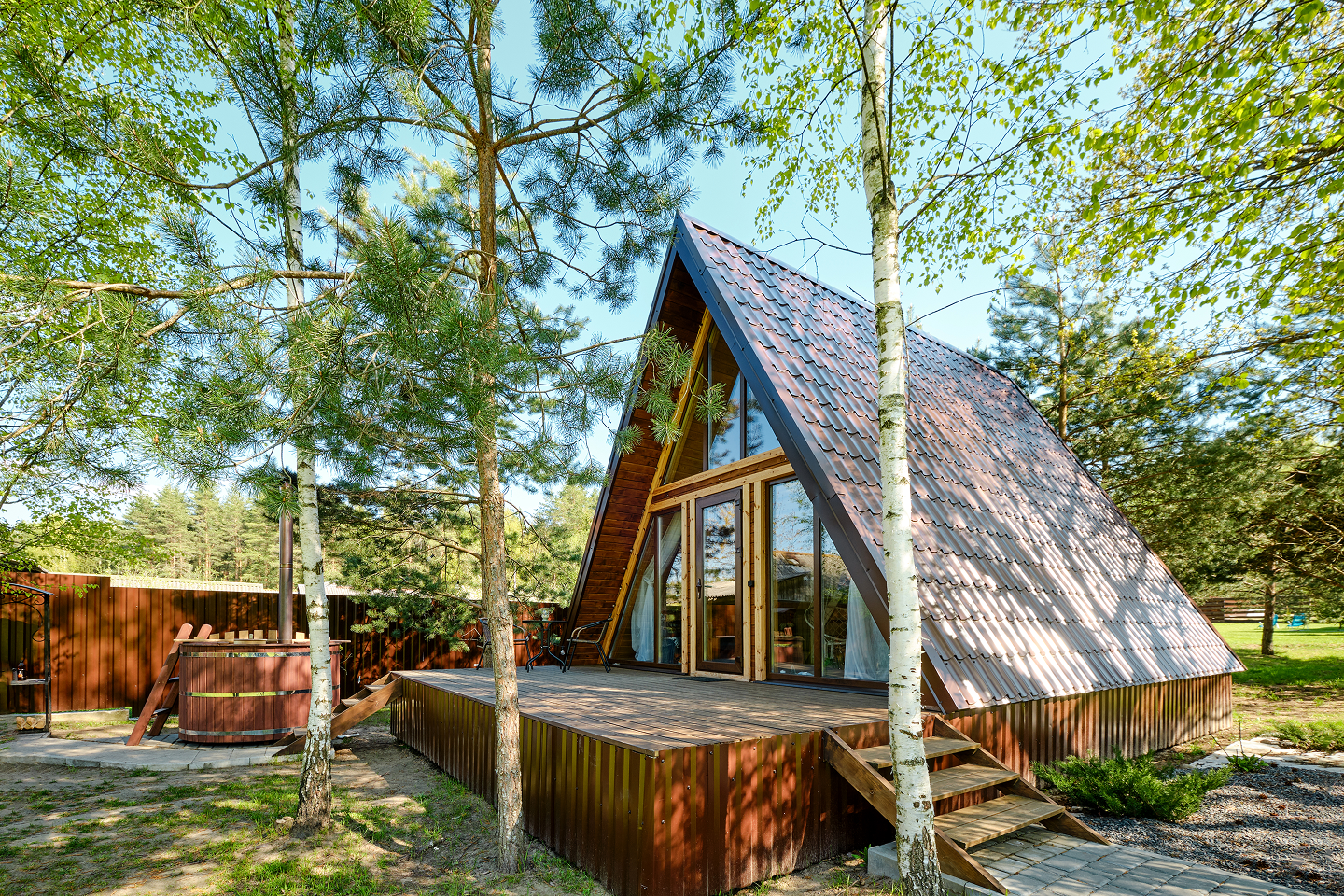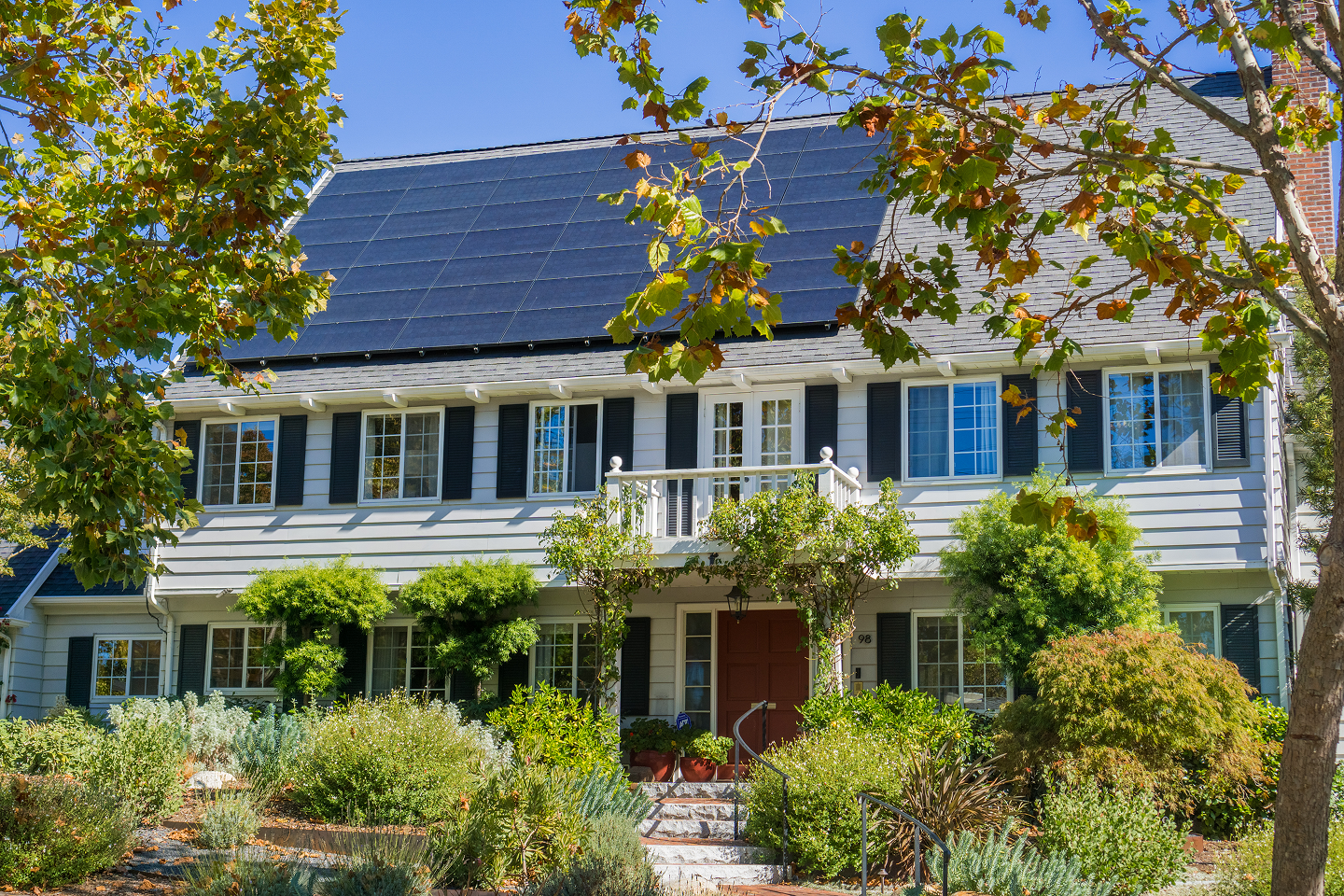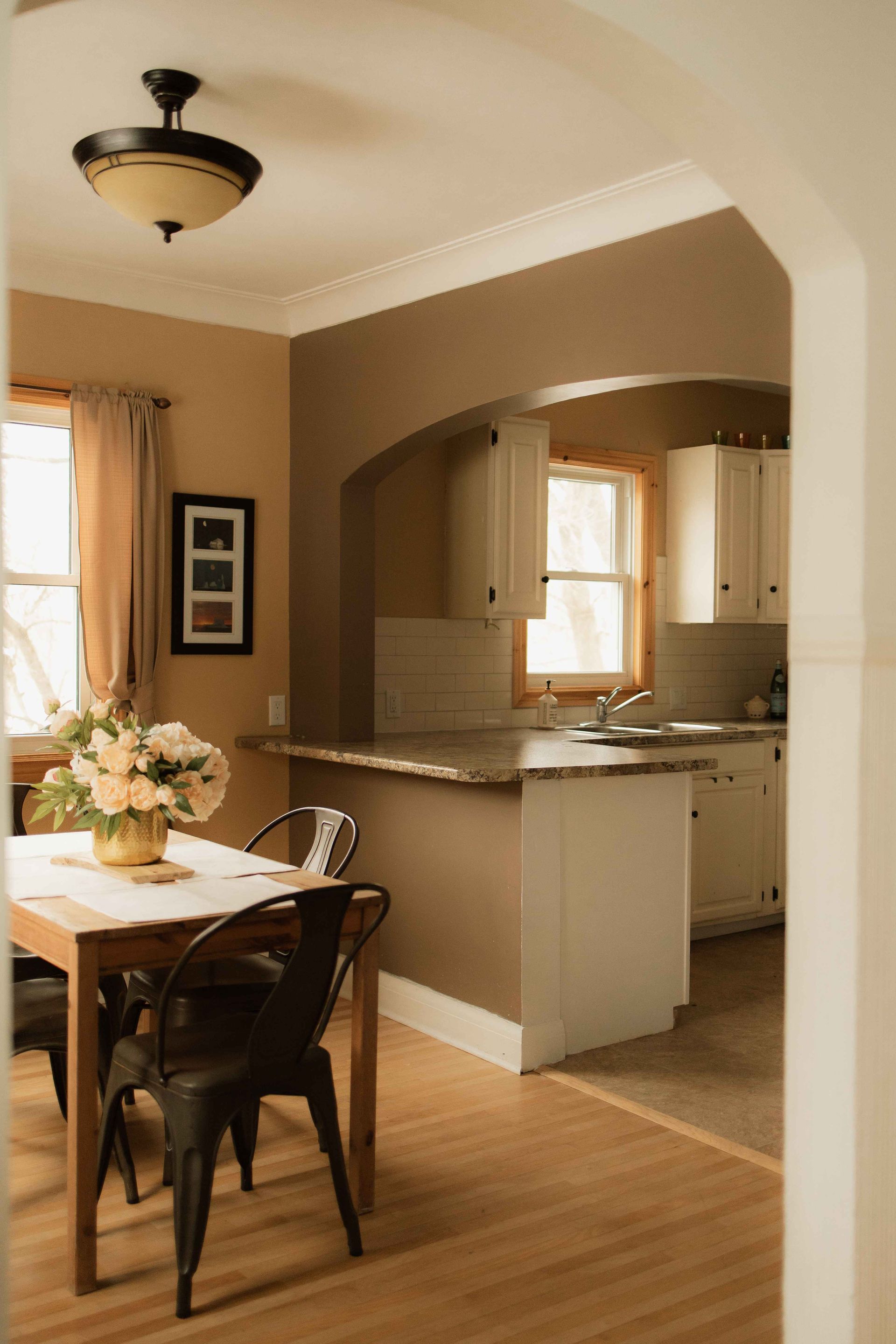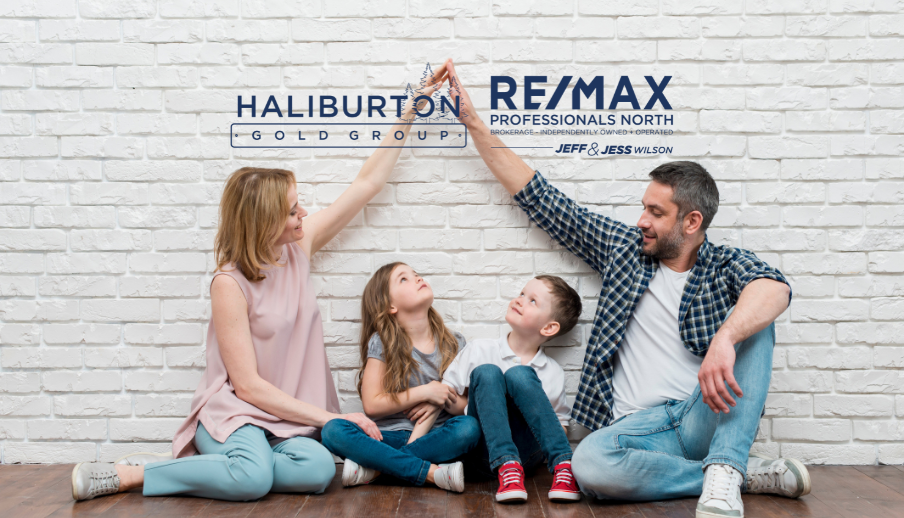Expert Staging Guide for Swift Sale of Homes & Cottages in Haliburton
The Art of Staging
Home staging is a marketing strategy employed in the real estate industry that entails preparing and decorating a property to make it more appealing to potential buyers. It goes beyond simple cleaning and decluttering; it's an art that involves showcasing your property's best features, minimizing its flaws, and helping buyers envision themselves living there.
The significance of home staging cannot be overstated. A professionally staged home often appears more inviting and attractive, not just in person, but also in listing photos and virtual tours, which are usually the first point of contact for potential buyers. This enhanced appeal can result in more inquiries, quicker sales, and sometimes, even higher offers.
The Power of First Impressions
In the world of haliburton real estate, first impressions carry tremendous weight. Potential buyers often form opinions about a property within the first few moments of seeing it. A cluttered, poorly lit, or outdated home can instantly deter a prospective buyer, while a clean, well-lit, and beautifully staged home can captivate them.
Home staging has the power to transform these first impressions. By strategically arranging furniture, using appealing color schemes, optimizing natural light, and adding tasteful decor, staging can breathe life into a space and make it feel warm, spacious, and inviting. It allows buyers to see the home's potential, encouraging them to visualize their life within its walls.
Simply put, a well-staged home creates a powerful first impression that can pique a buyer's interest and make your property stand out in the competitive Haliburton real estate market.

Staging Tips for Homes in Haliburton
Home staging is a crucial aspect of selling a property, and Haliburton is no exception. Here, we provide some expert tips to maximize the appeal of your home, focusing on key areas like the living room, bedrooms, kitchen, and bathroom.
- Living Room: The living room often serves as the centerpiece of a home, and as such, it should exude comfort and style. Start by ensuring the room is clutter-free. Then, arrange the furniture to create an inviting layout that promotes conversation and flow. Use neutral color palettes for large pieces and add pops of color with throw pillows or artwork. Lastly, emphasize natural light by keeping windows clean and unobstructed, and add layered lighting for ambiance.
- Bedrooms: Bedrooms should evoke a sense of tranquility and restfulness. Use soft, soothing colors for the walls and bedding. Keep nightstands clear of personal items, but consider adding a stylish lamp or a book to make the space feel lived-in. For kids’ rooms, make them look as neutral as possible to appeal to the broadest audience.
- Kitchen: The kitchen is one of the most important rooms to prospective buyers. Start by deep cleaning everything, from the countertops to the inside of the oven. Clear off countertops, leaving only one or two small appliances like a coffee maker. Consider updating cabinet hardware and lighting fixtures if they look dated. Lastly, set the scene with a bowl of fresh fruit or a vase of flowers on the countertop.
- Bathroom: In the bathroom, cleanliness is paramount. Scrub every surface until it sparkles, and keep personal items out of sight. Invest in new towels, bath mats, and a shower curtain for a fresh look. Add a touch of luxury with a decorative soap dispenser, a few high-quality toiletries, and perhaps a small potted plant.
- Overall Tips: Across all rooms, depersonalize and declutter. Buyers should be able to envision themselves in the space, which can be difficult if your personal photos, knick-knacks, or bold artwork dominate the scenery. However, don't strip away all personality. A few well-placed items, like a vase of fresh flowers, a bowl of lemons in the kitchen, or a tasteful coffee table book, can add warmth and charm.
Remember, the goal of staging is to highlight your home's strengths, downplay its weaknesses, and appeal to the greatest number of potential buyers. The key is balance—your home should feel lived-in but not personal, clean but not sterile, stylish but not overdone.
In Haliburton, where the natural scenery is a big part of the appeal, don't forget to make the most of any views, outdoor spaces, and natural light. Open those blinds, clean those windows, and set out some comfortable outdoor furniture.
Staging a home for sale in Haliburton doesn't have to be overwhelming. With these room-by-room tips, you can create a space that not only attracts buyers but also gets you the best possible return on your investment.
Staging Tips for Cottages in Haliburton
Expert Advice on Staging Cottages for Sale
Staging a cottage for sale requires a slightly different approach than staging a traditional home. Here are some expert tips on how to emphasize the unique charm and features of your cottage to attract potential buyers:
1. Highlight Rustic Charm
Many buyers are attracted to cottages because of their rustic charm and character. Emphasize these features by using natural, rustic materials where possible, such as reclaimed wood furniture or a natural stone fireplace. If you have unique architectural features like exposed wooden beams or original hardwood floors, make sure these are highlighted and not hidden away.
2. Maximize Natural Light
Cottages can sometimes feel small or dark. To counteract this, maximize natural light by using light and airy window treatments. If you have beautiful views, ensure they're not obscured by heavy curtains or blinds. Use mirrors strategically to reflect natural light and make the cottage feel larger and brighter.
3. Create Cozy Spaces
One of the appeals of a cottage is the promise of a cozy, relaxed lifestyle. Create cozy, inviting spaces, such as a reading nook by a window or a comfortable seating area by the fireplace. Use soft lighting, plush cushions, and throws to add warmth and coziness.
4. Emphasize Outdoor Spaces
Outdoor spaces are often a major selling point for cottages. If you have a porch, patio, or deck, stage these areas with comfortable outdoor furniture. If you're close to a lake or have a beautiful garden, make sure this view is visible from inside the cottage.
5. Stage for the Season
If you're selling in the summer, stage the cottage with summer activities in mind. Show buyers how they can enjoy the outdoors, maybe with a well-placed hammock or an outdoor dining setup. If you're selling in the winter, make the cottage feel cozy and warm, with a fire in the fireplace and cozy blankets on the couch.
6. Keep it Simple and Neutral
Just like staging a home, it's important to keep the decor neutral and not too personal. Stick to a neutral color palette with pops of color to keep the space feeling bright, open, and appealing to a wide range of buyers.
Remember, the goal of staging a cottage is to help potential buyers visualize themselves enjoying a relaxed, comfortable lifestyle in a charming and cozy setting. By following these tips, you can create a space that appeals to buyers and helps you sell your cottage quickly and profitably.
Case Studies: Before and After Staging
Staging can make a significant difference in the appeal of a home or cottage. Here are two real-life examples from Haliburton that illustrate the transformative power of staging.
- Case Study 1: The Lakeside Home
This spacious, four-bedroom home sat on the market for several months with little interest from potential buyers. Despite its fantastic location on the edge of a stunning lake, the property's interior felt outdated and cluttered, deterring younger, modern buyers.
The home stagers tackled this challenge by depersonalizing the space, removing old furniture and introducing modern, stylish pieces. They replaced heavy drapes with light, airy window coverings to let in the stunning lake views and natural light. By decluttering and updating the décor, they made the home more appealing to a broader range of buyers.
After the staging, interest in the property significantly increased, and it sold within a month, well above the asking price.
- Case Study 2: The Rustic Cottage
This charming, rustic two-bedroom cottage was initially overlooked by buyers due to its small size and dark interior. The challenge here was to make the space feel bigger and brighter without losing its rustic charm.
The stagers started by decluttering and simplifying each room, making the cottage feel more spacious. They replaced dark, heavy furnishings with lighter ones and strategically used mirrors to reflect natural light and make the rooms feel larger. In the living room, they staged a cozy reading nook by the fireplace, emphasizing the cottage's charm.
Post-staging, the cottage became a hot property, receiving multiple offers and ultimately selling for above the listed price.
These case studies show the profound impact staging can have on a property's appeal. With strategic changes, even properties that initially struggle on the market can become highly sought after, leading to quick sales and excellent returns on investment.
Professional Staging vs. DIY Staging
When it comes to staging your home, you have two main options: hire a professional stager or do it yourself.
Professional Staging: Hiring a professional stager has several advantages. They bring a wealth of experience and a fresh perspective, often seeing potential in spaces that homeowners may overlook. They understand what appeals to a broad range of buyers and stay up-to-date on design trends. However, the main drawback is cost, as professional stagers often charge a consultation fee, plus an hourly rate or a flat fee for their services.
DIY Staging: On the other hand, doing it yourself can save money. You can also work at your own pace, making changes as your schedule allows. However, DIY staging requires a keen eye for design, a good understanding of what appeals to buyers, and a significant investment of time and energy. Without professional experience, you may overlook key staging opportunities or make changes that don't improve—and could potentially harm—your home's market appeal.
Financial Implications: Cost vs. Return on Investment
Staging a home does require an upfront investment, whether you're hiring a professional or doing it yourself. However, the return on this investment can be substantial. According to the National Association of Realtors, staged homes sell faster and for more money than non-staged homes, with many sellers recouping more than their initial staging investment.
While staging costs vary widely depending on the extent of work needed and whether you hire a professional, remember that a faster sale often means fewer months of carrying costs—such as mortgage, utilities, and insurance—which can offset the cost of staging. Plus, if staging leads to a higher sale price, this could more than justify the initial expense.
So, when considering the financial implications, don't just look at the upfront cost—consider the potential return on investment and the speed at which you might be able to secure a sale. Staging isn't just about making a home look better; it's an investment in selling your property quickly and profitably.
Financial Implications of Staging and Potential Impact on Sale Price
The cost of staging a home varies widely, depending on a multitude of factors. These include the size of the home, the extent of staging required, whether you hire a professional stager or opt to do it yourself, and whether you need to rent furniture and accessories.
On one end of the spectrum, if you're simply decluttering and rearranging existing furniture, the cost could be negligible. If you're hiring a professional stager, costs could range from a few hundred dollars for a consultation to several thousand dollars for full-service staging of a large home. Renting furniture and accessories can also add to the cost but may be necessary if the home is vacant or if the existing furnishings don't show the property to its best advantage.
While there is an upfront cost associated with staging, it's important to view this as an investment rather than an expense. A well-staged home tends to sell faster and for more money. According to a 2019 report by the National Association of Realtors, a quarter of buyers' agents cited that staging a home increased the dollar value offered between one and five percent compared to similar homes on the market that are not staged.
Staging can make a home more appealing, help it stand out in the crowded real estate market, and allow buyers to visualize themselves living there. All of these factors can lead to increased interest in the home, which can result in a faster sale, often at a higher price.
In essence, while there is a cost associated with staging a home, the potential benefits - faster sale and higher sale price - often more than offset the initial investment. It's a strategic move that can yield significant dividends in the competitive real estate market.
Conclusion
Staging is a potent tool in the real estate industry, transforming homes and cottages into highly desirable properties. Whether you're selling a cozy cottage or a luxurious home in Haliburton, strategic staging can make your property stand out, allowing potential buyers to envision the lifestyle that comes with it.
While there are costs associated with staging, it's essential to view this as an investment in the successful sale of your property. Whether done professionally or as a DIY project, a well-staged home can sell faster and often at a higher price. This is particularly relevant in picturesque regions like Haliburton, where buyers are not only investing in a property but a lifestyle.
In conclusion, staging is an integral part of the home selling process, a strategy that can effectively attract buyers, enhance property appeal, and ultimately contribute to a successful and profitable sale.
Frequently Asked Questions
These are some of the most frequently asked questions about waterfront real estate. If you have any more questions or need more detailed information, consider reaching out to a real estate professional or legal advisor who specializes in waterfront properties.
Waterfront properties may require additional insurance coverage, such as flood insurance or hurricane insurance, depending on their location. It's important to understand these requirements and factor them into your financial planning.
Learn More














